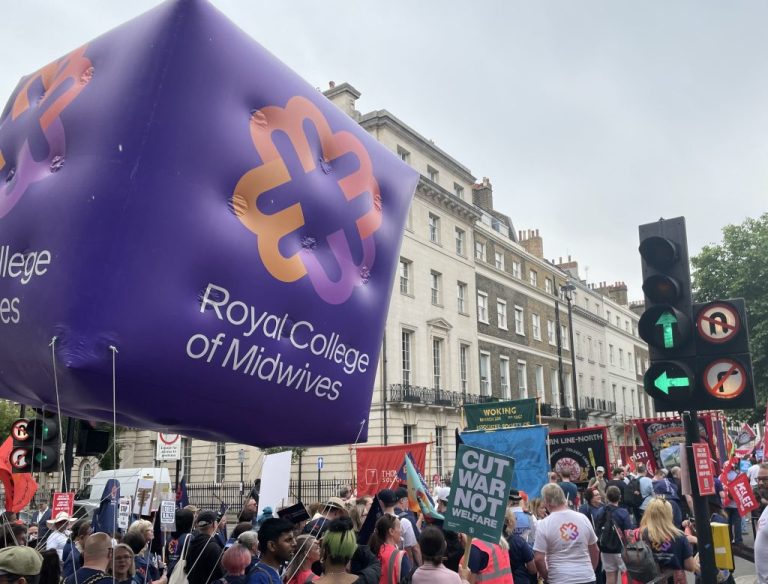Midwives have become the latest group of NHS workers to reject their governments’ most recent pay offer, but are not expected to be consulted about taking industrial action due to concerns about low turnout.
The Royal College of Midwives (RCM) has published the results of its three-week member consultation into a 3.6% Agenda for Change pay increase for the 2025-26 financial year – returning a resounding ‘no’ vote.
“[Midwives] are overstretched and undervalued – and that’s about far more than pay”
Gill Walton
This 3.6% pay offer was extended to all Agenda for Change contracted staff in England, Wales and Northern Ireland from each nations’ government.
A a different, higher, pay award was made available by the Scottish Government as part of a two-year deal posed to staff in 2024.
A significant majority of RCM members in England (81.9%), Wales (83.5) and Northern Ireland (77.7%) voted to reject the deal, said the college in a statement today.
However, Gill Walton, RCM general secretary and chief executive, said that turnout for the vote was low, adding that this potentially reflected the “fatigue” that the workforce was currently facing.
It has not revealed the precise level of turnout. But the union acknowledged that, if it now launched a formal strike ballot, it would likely fall short of the minimum turnout for legal industrial action.
Instead of pursuing that route, the RCM said it would focus on ensuring that next year’s pay award, for 2026-27 , was implemented on time and was a sufficient boost.
RCM members in England and Wales can now expect to receive their 3.6% pay award by the end of August. The award will also be backdated to 1 April 2025.
Ms Walton said: “[Midwives] are overstretched and undervalued – and that’s about far more than pay.
However, pay often feels like the only lever they can pull to make the NHS leadership take notice, which is reflected in the results of this consultation
“[UK health secretary Wes Streeting recently] said he recognised that more needs to change,” she said. “For the first time in a very long time, the crisis in maternity services has the focus of the NHS’s top team.
“We want to work constructively with all NHS bodies and the national governments to deliver positive change so that the working lives of midwives and maternity support workers are genuinely and tangibly improved.”
The union added that it would continue to monitor the situation in Northern Ireland specifically, where, in recent years, government instability has led to extreme delays in pay deals being implemented.
“A repeat of the significant delays experienced in 2024-25 in putting pay uplifts in place for its members in Northern Ireland must be avoided at all costs,” a statement from the union added.
Similarly to the RCM, the GMB announced last week that its members had rejected the pay deal.
Other unions, including the Royal College of Nursing (RCN) have been balotting members, too, but with suggestions that a formal strike ballot could follow.
An RCN spokesperson confirmed to Nursing Times that the results of its vote would be announced later this week, following reports in the national news predicting the result.
They added: “As the largest part of the NHS workforce, nursing staff do not feel valued and the government must urgently begin to turn that around.”
In response to the impending RCN vote announcement, a spokesperson for the Department of Health and Social Care said that the government would urge nurses to accept the pay rise.
“We hugely value the work of nurses, and through our 10 Year Health Plan, we are rebuilding the NHS for the benefit of patients and staff, and ensuring nursing remains an attractive career choice,” they said.
“This government is clear we can’t move any further on headline pay but will work with the RCN to improve their major concerns, including pay structure reform, concerns on career progression and wider working conditions.”

